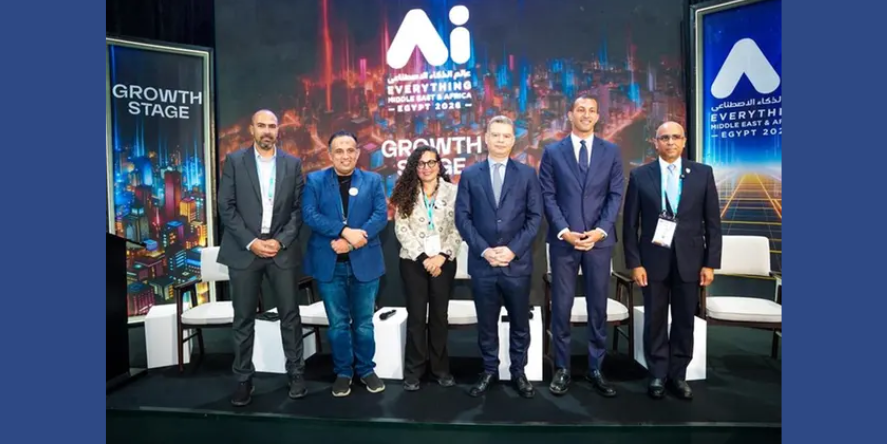Toshiba Global Commerce Solutions today announced a major expansion of its next-generation ELERA unified commerce platform at the National Retail Federation Conference, driving thus advancing the digital transformation in retail. The expansion heralds a new era in retail technology agile, connected, and infinitely adaptable.
\”Retailers can\’t drive their digital transformation when they\’re grappling with decades-old technology and hundreds of custom-built integrations that require enormous resources to maintain,\” said Rance Poehler, President, and CEO of Toshiba Global Commerce Solutions. \”ELERA is a breakthrough that means the end of technology liabilities and provides a modular foundation that enables them to transform their business at a speed not previously possible.\”
“Customers are not only realizing that ELERA is already delivering business results, they are excited about the freedom they now have to experiment with innovative ideas and services and then apply them across their entire business,” he added.
The announcement includes 45+ native microservices, API-first development, and low-code and no-code self-development tools that empower retailers to use a single platform to build unified retail solutions across all physical and digital touchpoints, devices, and systems, to iterate and scale. The new ELERA IoT platform (Internet of Things) enables seamless networking and the exchange of data between IoT devices. The new AI-powered product detection solution with edge cameras shortens self-checkout, improves staff utilization, reduces losses and shrinkage, and provides a more accurate inventory overview. The next generation of ELERA touchpoints and applications for the areas of point of sale, self-service, loyalty (customer loyalty), and promotions (sales promotion) uses microservices to create seamless shopping experiences and optimize processes
Toshiba\’s ELERA expansion comes at a time when the primary methods retailers used to engage with customers, such as Items such as discounts and rewards are no longer the only factors influencing brand loyalty or driving future sales. Consumer shopping behavior today is influenced by other factors, including the use of technology that makes shopping more convenient and efficient.
ELERA accelerates digitization and harmonization by providing retailers with low- and no-code tools and a single platform to develop, iterate and scale new applications and services across touchpoints and devices that span their entire physical and online store infrastructure include.
Today, 45+ pre-built microservices and 550+ APIs are available on the ELERA portal for use by approved retailers and independent retail solution providers.
Both stationary and e-commerce trade benefit from these new opportunities. Brick-and-mortar retailers can quickly unify and scale in-store capabilities and tie them to their digital platform capabilities, reducing development time and eliminating the hassle of maintaining multiple software stacks. E-commerce retailers can set up physical stores more easily and quickly, using services and functions that they have already developed for their own digital channels.
Toshiba\’s AI-powered product discovery, built on the new ELERA-IoT platform, demonstrates the power of moving smart devices to the edge and adding AI (artificial intelligence) capabilities to those devices, powered by Toshiba\’s state-of-the-art TCx EDGE camera.
Product recognition plays a central role in self-checkout adoption, removing traditional barriers. A study by PYMNTS.com and Toshiba found that 35 percent of customers believe that self-service systems are not suitable for purchasing goods. 15 percent say kiosks are likely to make mistakes when processing their orders. 14 percent are of the opinion that the self-service checkouts are difficult to use.
Toshiba\’s ELERA Merchandise Detection solution increases scanning accuracy and reduces the need for manual code entry and in-store staff intervention – making the self-checkout process a faster, more convenient, and smarter experience for consumers. Retailers can achieve business benefits such as B. Improvements in loss prevention and staff utilization, a reduction in shrinkage, and a more accurate inventory view.
\”Toshiba\’s unique approach to merchandise recognition is a striking example of how the ELERA platform combined with AI and machine vision technology can be deployed and scaled across the retail ecosystem,\” said Yevgeni Tsirulnik, VP of Digital Portfolio and Innovation at Toshiba Global Commerce Solutions. “With the proliferation of edge devices and IoT sensors, the data they capture can be made available to any application, device, and touchpoint. The positive impact of these modern technologies working together and at scale will impact the entire retail industry,” he added.
A novel solution that helps retailers rapidly build, deploy and reuse applications and resources to manage customer experiences at self-service kiosk touchpoints. The power of the ELERA platform ensures the coordination and orchestration of hardware devices, supports customer and employee user interfaces, and enables data exchange with other retail applications.
The next generation of POS systems makes optimal use of existing investments by building uniform retail functions on top of the store infrastructure and no longer having to \”replace and replace\” existing solutions. The commerce functions can be deployed to any POS end device and new use cases can be rapidly developed and deployed using accelerators and low-code and no-code development tools.
The next generation of Loyalty & Promotions (customer retention and sales promotion) uses advanced AI and machine learning technologies as well as shared data from other ELERA retail solutions to provide insights into key customer metrics and data, e.g. B. in the Customer Lifetime Value (CLV) and the segmentation according to purchasing behavior and tier groupings. The intuitive design enables business and marketing teams to create, implement and track customer retention and promotional campaigns across all devices, touchpoints, systems, and applications, as well as manage customer program data such as rewards points, store visits, and related offers.
“Through our next-generation ELERA solutions and platform, retailers finally have access to transformative, scalable technologies that are driving the emergence of real-time insights, edge computing, and a frictionless future,” said Tsirulnik. “Gone are the days of implementing these and other technologies in silos. The true value of these advanced technologies can only be realized when they are linked, converged, and scaled on a single, flexible platform. This creates a single source for evolving customer data, making every retail application smarter and accessible across all devices, touchpoints, and systems,” he added.









